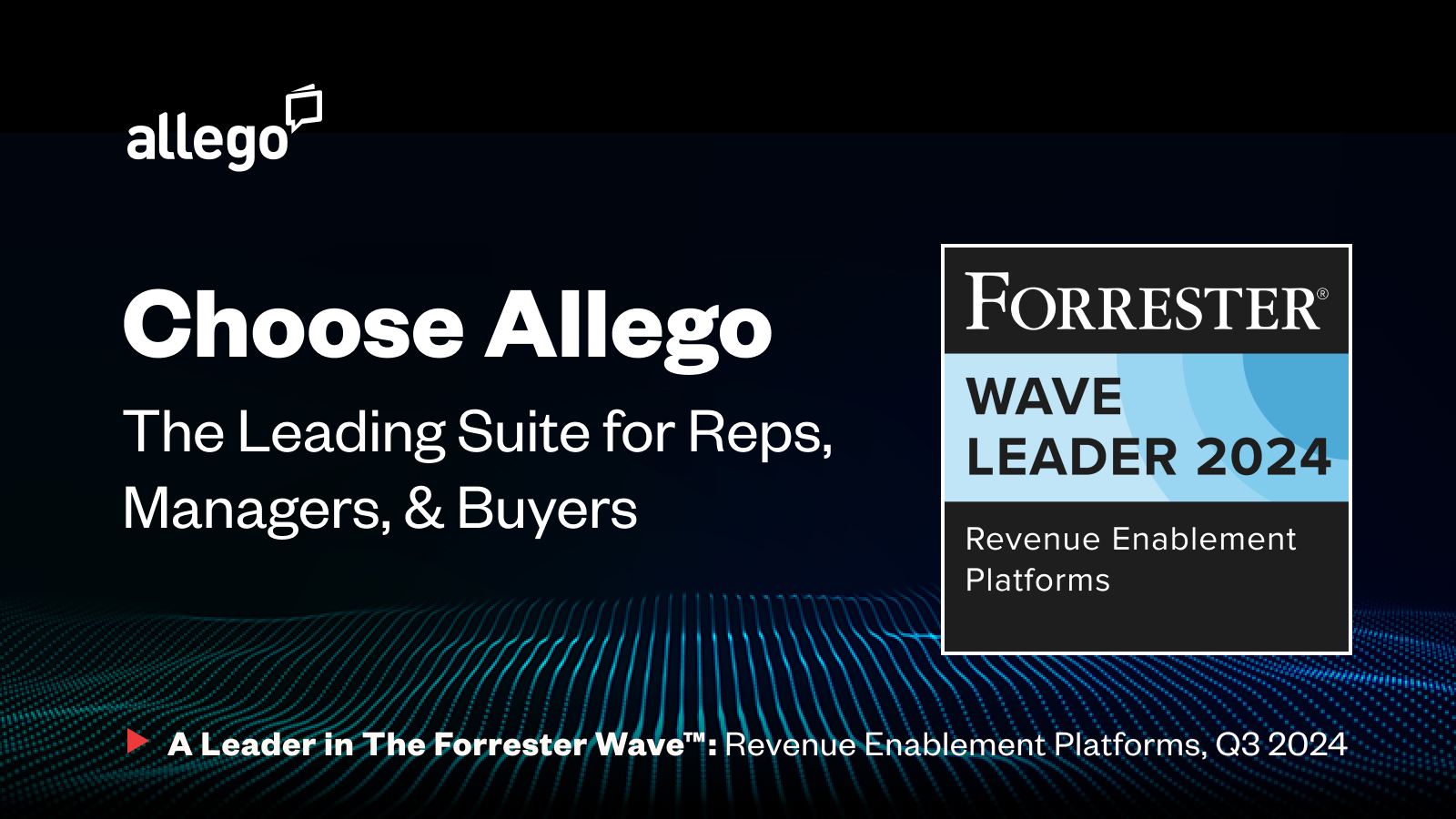Sales Coaching to Stop Competitor Reflux

“I worked with one of my clients recently and used their ‘competitor X’ account.” This was the line I heard when coaching one of the Allego team’s calls to a sales training organization last week. I knew it was coming as it was tagged on the timeline.
“This is great” I thought listening to the call, appreciating the benefits of conversation intelligence, understanding the time it can save, and seeing the value of having their own such account across all their clients, to coach calls remotely and create additional revenue streams is going to be super appealing.
Although on this call we got there in the end, it wasn’t without a major diversion, the kind you get when the one river crossing bridge is closed for essential repairs. A straightforward journey from A to B is about to take a giant detour – except the road never needed to be closed.
I replayed the moment four or five times trying to digest what one of our best account executives had done next. What was I missing? What were they trying to do?
In the end, I understood what had just happened. It was COMPETITOR REFLUX.
Triggered by a competitor mention, my rep had gone into battle. Armed with a suite of compelling reasons to choose Allego, like a baby when it’s had too much milk, he threw it all straight up, all over the prospect. It was as if he just couldn’t help himself – competitor had translated to ‘compete’. Except we were never competing here. It was great news – the prospect had been exposed to frankly similar technology and his tone of voice suggested the experience was favorable. The odds of a great fit, valuable partnership had gone up in one sentence.
Searching for competitor mentions across calls we analyze, it quickly became apparent this was not an outlier. Many reps have a similar reaction – their tone becomes defensive and they start belting out their key differentiators, sometimes without even feeling personalized to the prospect. As if programmed to react, this competitor reflux just kicks in. It was like those experiments you did at school – pour X on Y and BOOM! – ‘instant reaction’.
When we went through the call, our AE saw the error straight away. “I just went on auto-pilot,” he told me. When we role-played the moment again, he nailed it.
“Wow, that’s great. How did you find it?”
“What were the benefits for you as a coach?”
“And what about for those that you coached?”
“Do you have a lot of clients similar to that one?”
He knew the likely answers (note all questions).
“Wow, that’s great. How did you find it?” – Really valuable
“What were the benefits for you as a coach?” – I could coach anytime/anywhere, took less time to add more value
“And what about for those that you coached?” – Pinpointed the key moments and sales coaching feedback that would improve performance. Shared other playbook examples.
“Do you have a lot of clients similar to that one?” – Even if they didn’t, they probably wished they did.
“If you could coach like this across all your clients, what difference is this going to make to your (insert previous answer – time spent traveling to see clients/ROI on your time/ability to create additional revenue streams)
I concluded, we need to take responsibility for this as sales leaders. The default position is often to become defensive, try and throw out those differentiators and ‘compete’ for the deal. Perhaps this is inflamed by being fed by sales leaders those features the competitors don’t have yet, or the customer stories of clients that chose us or ‘upgraded’ to us from those competitors.
Competitor mentions increase deal likelihood. They are more likely a good fit prospect, on the way to understanding the value and have possibly researched or considered solving a problem opportunity worth solving.
Do your reps reflux when competitors are mentioned? If you’re not listening to their calls and highlighting those moments, I suspect you don’t know.
Learn More
Download The Complete Guide to Conversation Intelligence to learn how Conversation Intelligence can help improve sales coaching, content, and training.



